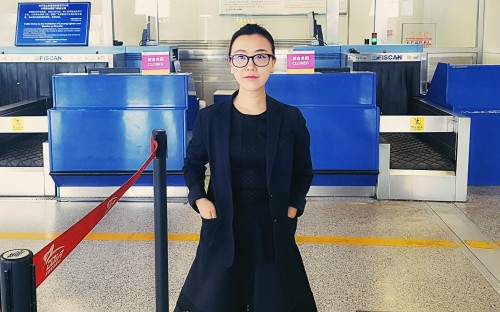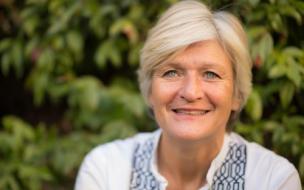Prior to her MBA, Viola worked for six years at a global security company in Shanghai, where she was charged with the procurement of security equipment for the London 2012 Olympics.
Keen to gain access to the UK jobs market and become a leading woman in business, she chose Bath for her MBA – ranked among the top 60 MBA programs in the world by the Economist.
After graduation, she landed a job as a market advisor for electronic manufacturer Heber. She got the job through the Bath MBA’s 11,000-plus international alumni network.
Now, she works in business development for Europe’s leading provider of IT airport security systems. Based in London, she’s in charge of projects in the Asian markets, and is working her way up the corporate ladder in an exciting new career in the UK.
She’s not alone. 98% of Bath MBAs get hired within six months of graduation. 50% of Viola's MBA class were women.
Viola graduated in 2013. Since then, Bath has revamped its MBA program, ramping up its focus on soft skills and practical learning. Rather than a final dissertation, Bath MBA students now work on five different projects over the course of the one-year program. And the Bath MBA’s Entrepreneurship in Action Project offers students the opportunity to develop a real startup idea, and pitch to a panel of experts.
How did the Bath MBA help you land a job in the UK?
The Bath MBA has an excellent alumni network which provides opportunities for MBA students looking for jobs. Heber found me through the alumni network and sponsored my final dissertation.
After winning the entrepreneurship practice module, I got another opportunity to work for a startup online services company. One year after graduation, we successfully launched an online service for Chinese students in both China and the UK. Another year later, I joined my current company.
The Bath MBA provided me with the knowledge I needed to move towards to a new and successful career. During the MBA careers module, one of the visiting lecturers asked us: ‘do you want to change your location, industry, or role?’ I chose all three.
Why did you decide to pursue an MBA at Bath?
I was particularly interested in studying in the UK with its top-ranking universities, high-quality research standards, and the fact it only takes one year to complete a full-time MBA in the UK.
Having considered other business schools, I chose the Bath MBA because of its focus on practical learning, its high reputation in international business and high academic standards. Through the MBA at Bath, I wanted to improve my skills in project management, human resource management, and marketing strategy, to help me to realize my career target and, one day, become a company director with an international perspective.
What stands out from your Bath MBA experience?
The Bath MBA had a well-balanced approach which combined both academic theory and practical exercises in each module. It provided new angles to think about and solve real business problems.
We had 58 people in the class from 20 different countries – an amazing opportunity for me to work with people from different cultures and industry backgrounds. The entrepreneurial practice module also inspired me to think outside of the box in terms of my career.
What is the future for women in business?
Sales roles in my industry remain very much male-dominated. Luckily, I have received great support from my company and colleagues.
I believe more and more women are now becoming involved in business, and getting promoted to management and board level. I have seen more women in business meetings which were previously occupied by men in both China and the UK.
Indeed, women who have an MBA background may have more opportunities than ever before to be promoted to management level positions in industries previously dominated by men.
RECAPTHA :
e7
c3
f8
63








